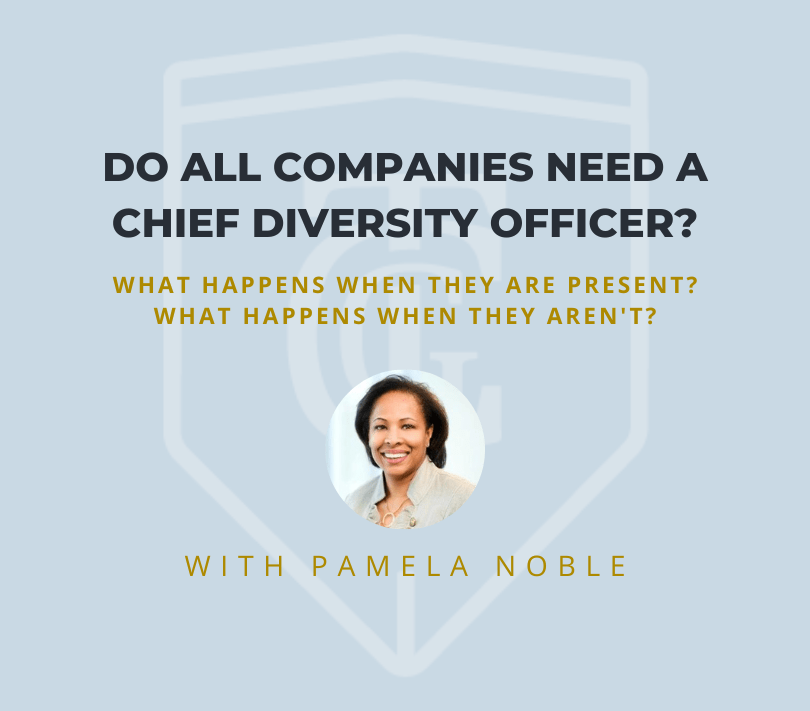Promoting diversity and belonging in the workplace is not just a buzzword. It’s a crucial aspect of modern businesses. Companies that foster diversity and belonging have been proven to have better financial performance, increased innovation, and a more engaged workforce. However, with the recent supreme court ruling on affirmative action in colleges and universities the question arises, do all companies need a chief diversity officer (CDO)? What happens when they aren’t present, and what happens when they are?
A CDO is a high-level executive responsible for developing and implementing strategies that promote diversity and belonging within an organization and the community it supports. They work to create a workplace culture that values and respects differences and ensures equal opportunities for all employees regardless of their race, sexual orientation, religion, subculture, neurodiversity, or any other personal identity. One aspect of a CDO’s role is to create policies and practices that promote diversity and belonging, educate employees on bias and sensitivity, and ensure that employment policies, procedures, and practices are fair and unbiased. They help create space so every employee can be their authentic selves at work.
In addition to their responsibilities within the organization, Chief Diversity Officers (CDOs) play a crucial role in connecting the internal and external components of their work, including investing time and funds in the communities they serve. As advocates for diversity and belonging, CDOs recognize that their impact extends beyond the confines of the organization and into the broader community. They understand that investing in diversity and belonging is beneficial for the company and society at large.
Do All Companies Need a CDO?
The answer is complex, as it depends on the company’s size, industry, and current diversity initiatives. Some companies may not require a CDO if they already have a strong culture of diversity and belonging where all employees, regardless of background, feel they can bring their authentic selves to work – creating an environment where they belong. Other businesses, while they may not require a full-time CDO, can benefit from hiring a diversity consultant to guide their diversity and belonging efforts. The majority of large organizations, on the other hand, do need a CDO to oversee diversity initiatives across multiple departments and locations. We suggest bringing in a diversity consultant who can facilitate a DE&I maturity model or conduct Global Diversity, Equity & Inclusion Benchmarks (GDEIB) to better understand where your organization stands.
What Happens When a CDO is Not Present?
Research has shown that companies without a CDO are less likely to have diverse leadership and employees. This lack of diversity can result in a homogenous workplace culture that is less innovative and less competitive. Homogeneousness goes beyond someone like me – like me means similar thoughts, ideas, and viewpoints limiting an organization to look beyond what is in front of them. A homogenous workplace can also make it challenging for the company to attract and retain top talent, particularly from under-represented groups. The gap doesn’t allow the organization to break through the system creating stasis and limiting the view of what is possible and new ways of thinking. The absence of a CDO can also impact a company’s bottom line. A lack of diversity and inclusivity can lead to lower employee morale, decreased productivity, and higher turnover rates. Furthermore, companies that lack a CDO may be more susceptible to lawsuits related to discrimination and bias. These lawsuits can be costly regarding legal fees, damages, and negative publicity.
What Happens When a CDO is Present?
When a company has a Chief Diversity Officer (CDO), it can experience many benefits that positively impact its success. A CDO can help create a workplace culture that values and respects differences and ensures equal opportunities for all employees. By fostering a diverse and inclusive environment, employees are more likely to feel valued, included, and motivated to contribute to the company’s success.
A diverse workforce combined with an inclusive culture can bring new thoughts, ideas, and perspectives to the table, leading to increased innovation and creativity. Companies with a CDO are more likely to attract, retain, and engage employees from diverse backgrounds who can bring unique ideas and experiences to the company. Additionally, a CDO can help the company make better business decisions by ensuring that the decision-making process considers the perspectives and experiences of all employees. This approach can lead to better-informed decisions that consider the needs and interests of all stakeholders and the current and future communities they serve. Employees are more likely to stay with a company that values and respects their differences. Companies with a CDO are more likely to have a diverse workforce throughout the organization (vertically, horizontally, matrixed) and a workplace culture that promotes belonging, which can lead to better employee engagement and retention.
Furthermore, it is important that the employees within a company reflects the population it serves. This allows companies to understand better and cater to the needs and preferences of their target audience. This alignment fosters a deeper connection and trust between the company and its customers or clients. When people see themselves represented within an organization, they are more likely to feel understood, valued, and supported. This sense of belonging can enhance the company’s reputation and strengthen its relationship with the public, leading to increased customer loyalty, improved sales performance, and a competitive edge in the market.
However, progress is only made when a CDO partners with business leaders to infuse diversity and belonging into all ways of working. A CDO needs the entire organization’s partnership, from leadership to employees, to effect real change. Initiatives must be ingrained in the organization’s culture and supported by all employees. Additionally, the CDO must have the necessary resources, such as a budget and staff, to implement their initiatives successfully.
Overall, promoting diversity and belonging in the workplace is crucial for modern businesses. Whether a company needs a CDO depends on various factors, including size, industry, and current diversity initiatives. A lack of a CDO can hinder progress toward a more diverse and inclusive workplace, while a CDO can significantly aid in promoting diversity and belonging. However, a CDO alone is not enough, and organizations must support diversity initiatives at all levels to effect real change. Ultimately, creating a diverse and inclusive workplace benefits everyone, from the employees to the company’s bottom line.
This is the first in a Diversity, Equity, and Inclusion in the Workplace series by Pamela Noble.
About Pamela Noble
 Pamela Noble joined The Christopher Group in 2020 and currently serves as Managing Director, Head of Recruiting Operations. She brings over 25 years of comprehensive human resources leadership to The Christopher Group. Former CHRO and talent succession lead, she has built Human Resources departments as a true strategic business partner, strengthened corporate-wide employee engagement, led diversity, equity, and inclusion initiatives, and become a trusted advisor with a reputation of high personal integrity.
Pamela Noble joined The Christopher Group in 2020 and currently serves as Managing Director, Head of Recruiting Operations. She brings over 25 years of comprehensive human resources leadership to The Christopher Group. Former CHRO and talent succession lead, she has built Human Resources departments as a true strategic business partner, strengthened corporate-wide employee engagement, led diversity, equity, and inclusion initiatives, and become a trusted advisor with a reputation of high personal integrity.
Pamela is currently pursuing her doctoral degree from Wright Graduate University in Transformational Leadership and Coaching where she earned her Master’s degree. She also earned her Bachelor of Economics from Howard University. To learn more about Pamela visit her bio page.

